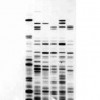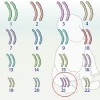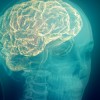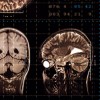Site Topics

DNA Authentication
Sep 2nd
While recent advances in DNA technology have revolutionized the field of forensic science, it also makes us question whether or not the evidence at a crime scene is genuine. Basic techniques such as PCR, molecular cloning, and the most recent whole genome amplification, allow for someone to synthesize DNA under any genetic profile in vitro. This artificial DNA can then be implanted into human tissues or placed on the surface of objects, and planted at a crime scene. Current forensic procedure cannot distinguish between artificial and natural DNA samples.
The company Nucleix is now offering a tool to distinguish between natural and More >

Copy number variation in Schizophrenia
Sep 1st
Ever had the feeling you have lost your marbles? According to the Phrase Finder that expression has conveyed a sense of loss, anger, and more recently a lack of common sense or sanity. As it turns out it may be the loss of certain segments of DNA (rather than simple mutations like SNPs) that may have a lot to do with the origins of mental illnesses like schizophrenia.
Now before you start thinking that schizophrenics are the only ones to lose their marbles (or large sections of their genomes), It has been previously shown by work like that of Jonathan Sebat of More >

Coffee and cancer – good or bad?
Aug 31st
Welcome to my first post to the Inside Cancer Blog… I hope you enjoy.
I’m a bit of a coffee drinker, so I often wonder if this is good or bad. Growing up, it was always presented as a vice. Yet, I have been drinking coffee all my life- and coffee has thousands of chemicals in it. Should I try to quit, or am I all right? Given all the chemicals, I have worried that I might be exposing myself to a cancer causing chemical- a carcinogen. Recently, a few reports have looked into this. On the whole, coffee comes out More >

Do Genes Always Follow the Rules?
Aug 31st
As a teacher, I find that the presentation of classical Mendelian inheritance is important, but can be misleading. Do genes always follow the rules that the “Father of Genetics” observed in his garden? Don’t get me wrong, I appreciate Mendel and his contribution to genetics, but the exceptions seem much more interesting!
For example, many genes are pleiotropic, meaning they affect more than one phenotype. How about the recent development on red heads and anasthetics? I happen to live with a red head, from a long line of red heads, so in our family this was a topic of discussion for days. The mutation More >

Heath Ledger’s Joker and the Hollywood Stereotype of Mental Illness
Aug 19th
A report released this week by Dr. Peter Byrne of Newham University Hospital in London takes issue with the portrayal of mental health in Hollywood. Dr. Byrne highlights a number of characters, including Heath Ledger’s Joker from the Batman series and Jim Carrey’s character(s) in Me, Myself and Irene, which “represented a new low [for] laughing at people with severe mental illness.”
Titled ‘Screening Madness’, the report highlights lazy and derivational stereotypes that perpetuate the myth that people with mental health problems are either stupid or dangerous.
According to Dr Byrne, “Mental health stereotypes have not changed over a century of cinema. More >

Health Care and Eugenics
Jul 16th
Health care is the burning topic these days. Accusations are flying against government initiatives including terms like sterilization, Nazi, and eugenics.
Are these fair characterizations? Decide for yourself by exploring several topic areas in the Eugenics Archive that may sound as if they were discussed at the latest town hall meeting: Birth and Population Control, German/Nazi Eugenics, and Sterilization Laws. Once in the Archive, choose to browse by topic to read the topic essays and view the associated images.

Depression Genetics Suffer Major Setback
Jul 6th
A 2003, a paper by Caspi and colleagues offered tantalizing clues about the genetics of depression, in what was widely-acclaimed as a breakthrough paper for psychiatric genetics as a whole. Now, new research by Katleeen Merikangas at the National Institute of Mental Health queries the results taking us, according to Science magazine, back to the drawing board.
What was so important about Caspi et al.? The original Caspi paper of 2003 looked at a sample of 847 New Zealanders, and examined whether gene-environment interactions might lead to depression. The research team were particularly interested in genes involved in serotonin transportation and reception - serotonin has More >

Ida – Overwhelming or Over-Hyped?
May 26th
Last week, the fossil skeleton known as “Ida” was introduced to the world with a fanfare rarely seen in the scientific community. Touted by publicists as the find “that will change everything”, Ida’s arrival on the world scene has provoked a mixed reaction from researchers and commentators.
Ida was a lemur-like mammal that roamed central Europe about 47 million years ago. She died at a relatively young age of 9 months, on the banks of the volcanic Lake Messel in modern-day Germany. The circumstances of her death play a large part in her current fame – researchers involved in the find More >

Psychosis – New Study Links Gene Variant to Brain Structures
May 12th
A study published in last week’s Science magazine shows how genomic science and neuroimaging can be combined to deliver insights into cognitive disorders. As well as providing an intriguing look into the neurobiology of psychosis, the study reflects a growing trend toward inter-disciplinary research in the neurosciences,
What did the study show?
Psychosis is a disordered cognitive state that can include disorganized thoughts, delusions, or hallucinations. It is a common symptom of schizophrenia and has been linked to a number of brain areas, including the the dorsolateral prefrontal cortex (DLPFC) and the hippocampus. Schizophrenia is also strongly associated with a number of genes, and More >

Can We Diagnose PTSD with Brain Scans?
Apr 18th
Duke University’s Rajendra Morey was in the news this week following a presentation at the World Psychiatric Association Congress in Italy. Dr Morey’s group recently published a paper equating symptoms of post posttraumatic stress disorder (PTSD) with “markedly different neural activity”. Dr. Morey raised the possibility of using brain scans to diagnose PTSD, thereby catapulting herself into the science pages of Forbes, Reuters et al. She joins a lengthy list of researchers that have whetted our appetite with tantalizing suggestions about the predictive power of neuroimaging. Sadly, the list of those who have followed through on this promise is not quite so More >
